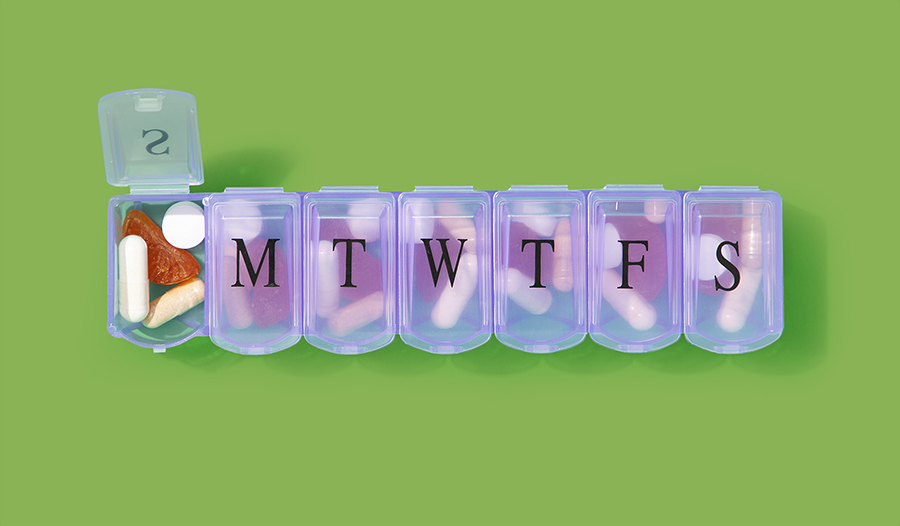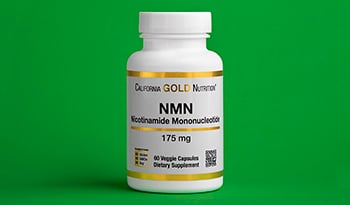4 Supplement Starter Kits: Gut Health, Fitness, Skincare, + Immunity

With a seemingly endless assortment of supplement options on the market, it's easy to feel overwhelmed. Whether your goal is to improve your digestive health, boost your athletic performance, achieve radiant skin, or strengthen your immune system, knowing where to start can be the biggest challenge.
That's where supplement starter kits come in. By focusing on a few key nutrients for a specific goal, you can create a simple yet effective routine that delivers real results.
This guide will walk you through the four essential supplement starter kits to help you achieve your health and wellness goals.
The Gut Health Starter Kit: Your Foundation For Wellness
A healthy gut is the cornerstone of overall health. It impacts everything from your digestion and mood to your immune system. If you're experiencing digestive issues like bloating, gas, or irregular bowel movements, this starter kit is for you.
1. Digestive Enzymes
Many people who have digestive issues benefit from betaine hydrochloric acid supplementation or digestive enzyme support at meals and snacks.
- What they do: These blends contain enzymes that are naturally produced in our stomachs, mouths, and digestive tracts. The enzymes break down the foods we eat so that we can extract nutrients from them and use those nutrients to power the biochemical reactions that happen in our bodies each day.
- Who they may help: Since our enzyme and stomach acid production can decline with age or infection, impaired enzyme production is a common finding in many clinics across the globe. If you have issues in your digestive system due to a lack of enzymes, you might notice that certain foods feel like they just “sit” in your gut and don’t fully break down. People with low hydrochloric acid often tell me that they have a hard time digesting meats and proteins. People with low pancreatic and salivary enzymes tend to have an impaired ability to digest carbohydrates. Those with impaired gallbladder function will get symptoms when they consume too much fat. If this is starting to sound like you, try digestive enzymes at a meal and see if they help you reduce bloating, gastric distress, and make you feel like you digest your food more easily.
2. Probiotics
- What they do: By now, you’ve certainly heard the abundance of research that suggests that beneficial bacteria in our digestive systems (or “probiotics”) can improve digestion, immune function, mental health, and more.
- Who they may help: If you’ve never taken probiotics before and have digestive symptoms like diarrhea or constipation, try taking some probiotics at night and see if they help.
3. Magnesium and Vitamin C
Constipation is defined as less than one bowel movement per day or every other day. In my clinic, it’s anything less than once a day that makes you uncomfortable.
- What they do: Magnesium is a mineral that can naturally loosen stool by encouraging fluid exchange across the colonic membrane. If you’re constipated, try a magnesium powder or liquid in a small dose at first with lots of water. Try this during a day where you’ll be around a bathroom in case it works quickly! Vitamin C helps to stimulate bowel movements if used in high enough doses. Try a powdered vitamin C mixed with lots of water at a dose of between 1-3 grams with a meal, again, on a day you’ll be close to a bathroom.
- Who they may help: If you have chronic constipation, magnesium and vitamin C are some of the most helpful nutrients on the planet for you to try. If that’s not enough to help you go, you can chat with your doctor about increasing the dose and what dose is safe for you. If you’re on cardiac or kidney medications or have a chronic condition, always ask your doctor before starting any mineral supplement, including other minerals like calcium, potassium, and iron.
The Fitness Starter Kit: Fuel Your Performance + Recovery
Whether you're a seasoned athlete or just starting your fitness journey, the right supplements can help you get the most out of your workouts and recover faster.
1. Amino Acids and Protein
- What they are: Amino acids are the building blocks of the proteins in our bodies, including the proteins we need to build muscle. They also help to make dopamine, thyroid hormone, serotonin, melatonin, and more. If you’re not eating enough total protein or amino acids, it will be difficult to build more muscle and repair the muscle tissue that’s broken down during heavy workouts.
- How they may help: Getting 100% RDI of protein and amino acids for your height and weight is therefore a great strategy for maximizing your gains in the gym. You can eat protein-rich foods like meats, fish, eggs, beans, and lentils at each meal to hit your protein gram goal for the day. If you have a hard time hitting this goal, you can try adding collagen powder to hot drinks or vegan protein powders to smoothies to make up the difference.
2. B Vitamins
- What they do: You need B vitamins to create cellular energy (or ATP) as well as to make new DNA. Some of the top sources of B vitamins in the diet are animal foods, so if you’re vegan, you’re probably already familiar with the idea that you need to supplement B vitamins each day to feel your best.
- How they may help: Taking B vitamins each day and before a workout can help give you the energy you need to perform at your best. Try a pre-workout powder that contains B12 and B6, or a multivitamin that has 100% RDI of all of the B vitamins (1-12) each day. If you drink alcohol, you should also make sure you get enough B1 (thiamine) each day, since alcohol consumption depletes this B vitamin.
3. Minerals/Electrolytes
- What they do: Did you know that electrolytes and minerals are actually the same thing? Potassium, sodium, chloride, and magnesium are some of the most important minerals lost in sweat. They help to regulate cell metabolism and electrical signaling in the body. Without enough of them, humans can get into serious trouble. Some of the most common causes for ER visits include dehydration and hyponatremia, which are disorders caused by an imbalance in electrolytes and fluid.
- Who they may help: Many people under-consume these minerals in their diets. Combine a dietary deficiency of minerals/electrolytes with an increased rate of sweating due to intense workouts, and you’ve got a perfect recipe for an electrolyte imbalance, particularly if you only drink plain water and lots of it. Some of the most unhealthy people I see are those who try to (mistakenly) consume a gallon of water per day based on advice they got from a fellow gym-goer, but they don’t mix electrolytes with it. These people can end up with hyponatremia—too much water and not enough electrolytes, which can have awful side effects like fatigue, nausea, headaches, mood changes, and even worse. So, I always like my clients to make sure they’re getting enough minerals each day and replacing what they lose during workouts. I love electrolyte drops, mineral liquids, electrolyte tabs, and packets that can be added to water.
The Skincare Starter Kit: For A Healthy Glow From Within
Topical creams and serums are only half the battle when it comes to healthy skin. For a truly radiant complexion, you need to nourish your skin from the inside out.
1. Collagen
- What it does: Collagen is the most abundant protein in the body and is responsible for your skin's elasticity and firmness. As we age, our collagen production declines, leading to wrinkles and sagging skin.
- How it may help: Supplementing with hydrolyzed collagen peptides can help improve skin hydration, elasticity, and reduce the appearance of fine lines.
2. Antioxidants
- What they do: Antioxidants, like vitamin C, protect the skin from oxidative stress and UV damage, which can lead to premature wrinkling and discoloration.
- How they may help: Vitamin C is also essential for collagen synthesis, making it a powerhouse for skin health. Look for a supplement that combines both vitamins C and E for comprehensive protection.
3. Hydration
- What it does: Proper hydration is key to plump, healthy-looking skin. Adding electrolytes to your water can help your body absorb and retain fluid more effectively.
- How it helps: An electrolyte powder with a blend of sodium, potassium, and magnesium can be a game-changer for skin hydration.
The Immunity Starter Kit: Your Shield Against Illness
A strong immune system is your best defense against seasonal bugs and other illnesses. This starter kit provides the key nutrients your immune system needs to function at its best.
1. Vitamin D
- What it does: Vitamin D is a crucial regulator of the immune system and plays a vital role in protecting against respiratory infections.
- How it helps: Many people are deficient in vitamin D, especially during the winter months. A daily vitamin D3 supplement can help ensure you have optimal levels for immune support.
2. Vitamin A
- What it does: Vitamin A is another molecule that helps to keep the innate immune system working properly.
- How to get more: Top food sources of this vitamin are beef, sweet potato, spinach, pumpkin, and carrots. If you won’t or can’t eat these, ask your doctor how much vitamin A is safe for you to take each day. Most times, a high-quality multivitamin will provide you with 100% RDI of the vitamin A you need in a day. You can take too much vitamin A. As a fat-soluble vitamin, it is stored when not used and can build up to unhealthy levels if you take too much, too often. This is why you should ask a doctor how much vitamin A is safe.
3. Zinc
- What it does: Zinc is a mineral that is required to catalyze over 100 different enzymatic reactions in the body, including the ones needed to amplify immunity, create proteins, make DNA, and more.
- How to get more: The top foods high in zinc are animal protein foods including beef, oysters, crab, and lobster. If you don’t consume a lot of these, it’s possible that you’re under-consuming zinc in your diet. Many high-quality multivitamins contain enough zinc, but you can also use a specific zinc-copper supplement to meet your needs. You should try to combine copper and zinc when possible because it’s important to consume these nutrients in balance with one another. Too much zinc can cause copper anemia, and consuming too much copper can cause zinc levels to drop. Ask your doctor what dose is right for you.
Takeaway
With these starter packs, you’re well on your way to stepping off on the right foot no matter where your health journey takes you.
Originally posted February 2021 and updated August 2025
References:
- Hemilä, H., & Chalker, E. (2013). Vitamin C for preventing and treating the common cold. Cochrane Database of Systematic Reviews
- Aranow, C. (2011). Vitamin D and the immune system. Journal of investigative medicine.
- Science, M., et al. (2012). Zinc for the treatment of the common cold: a systematic review and meta-analysis. CMAJ.
- Tiralongo, E., et al. (2016). Elderberry Supplementation Reduces Cold Duration and Symptoms in Air-Travellers. Nutrients.
- Abbasi, B., et al. (2012). The effect of magnesium supplementation on primary insomnia in elderly. Journal of research in medical sciences.
- Herxheimer, A., & Petrie, K. J. (2002). Melatonin for the prevention and treatment of jet lag. Cochrane Database of Systematic Reviews.
- Everett, J., et al. (2015). Theanine consumption, stress and anxiety in human clinical trials: A systematic review. Journal of Nutrition & Intermediary Metabolism.
- Gero, M., et al. (2023). Effectiveness of Whey Protein Supplementation during Resistance Exercise Training on Skeletal Muscle Mass and Strength in Older People with Sarcopenia. Nutrients.
- Kreider, R.B., et al. (2022). International Society of Sports Nutrition position stand: safety and efficacy of creatine supplementation in exercise, sport, and medicine. Journal of the International Society of Sports Nutrition.
- Chen, C., et al. (2021). Does Branched-Chain Amino Acids (BCAAs) Supplementation Attenuate Muscle Damage Markers and Soreness after Resistance Exercise in Trained Males? A Meta-Analysis. Nutrients.
- Kour-s, A., et al. (2022). The Role of Omega-3 Fatty Acids in the Healthy Brain & in Preventing & Treating Mental & Neurological Disorders. The Journal of Prevention of Alzheimer's Disease.
- Li, S., et al. (2019). Efficacy of Vitamins B Supplementation on Mild Cognitive Impairment and Alzheimer's Disease: A Systematic Review and Meta-Analysis. Current Alzheimer Research.
- Saitsu, Y., et al. (2020). Improvement of cognitive functions by oral intake of Hericium erinaceus. Biomedical Research.
- Cristofori, F., et al. (2022). The Role of Probiotics in Health and Disease. Frontiers in Immunology.
- de Miranda, R. B., et al. (2021). Effects of hydrolyzed collagen supplementation on skin aging: a systematic review and meta-analysis. International Journal of Dermatology.
- Hernández-Camacho, J. D., et al. (2021). Coenzyme Q10 and Cardiovascular Diseases. Antioxidants.
- Galiniak, S., et al. (2022). Health benefits of resveratrol administration. Molecules.
DISCLAIMER:This Wellness Hub does not intend to provide diagnosis...
















































































 Table of Contents
Table of Contents















